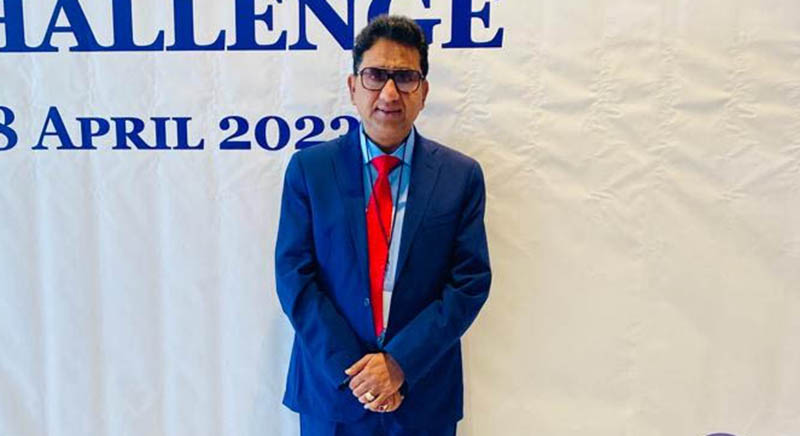The historic Criminal Law Procedure (Paper Committals) Bill 2024, which seeks to abolish traditional preliminary inquiries (PIs) in Guyana’s criminal justice system was passed in Parliament yesterday.
In moving the second reading of the bill, Attorney General Anil Nandlall SC said the move is aimed at streamlining the process and reducing the lengthy delays that often plague the system.
Under the current system, a preliminary inquiry is conducted before an indictment can be made, where prosecution witnesses are required to testify and be cross-examined by the accused or their lawyers. The evidence is then reduced to a written deposition, which is presented to the court. However, this process has been criticized for being lengthy and inefficient, often resulting in accused persons being remanded for extended periods without a trial.
Nandlall highlighted two examples of the problems caused by the current system. One case involved a man who was charged with a sexual offence in 2000 and was still awaiting a preliminary inquiry nearly 20 years later. Another example referred a citizen who was on remand for over seven years, with his legal proceedings still ongoing.
The new bill aims to replace oral preliminary inquiries with paper committals, where all evidence is presented in writing and submitted to the court. This will allow for a more efficient and expeditious process, reducing the length of time spent in remand and minimizing the financial burden on the state.
Nandlall acknowledged that there have been challenges to the proposed bill, including concerns about its compatibility with Guyana’s Constitution. However, he emphasized that the bill is designed to ensure that accused persons are given a fair trial and are not unduly prejudiced by delays in the justice system.
Following Nandlall’s presentation, Shadow Legal Affairs Minister Khemraj Ramjattan took the floor briefly to express his opinion. According to him, the Paper Committals Bill should have been introduced earlier, as it has been implemented in England since the 1960s. He attributed Guyana’s delay to the Bar Association and negotiations over oral hearings.
Ramjattan emphasized the importance of the Attorney General’s statement, suggesting that the prosecution should present all evidence at the committal stage so that the accused can adequately prepare their defence, which is a constitutional right. He expressed wholehearted support for the Bill, but with reservations about the need for an amendment to substitute the word “credible” with that of “relevant”.
Clause 7 provides for the admission of evidence and sets out the timeline for which all credible evidence should be filed by both the prosecutor or person acting on behalf of the prosecutor or, the accused or counsel on behalf of the accused. A government amendment substituted the word “credible” with “relevant”.
Clause 3 provides for the application of the Act to all proceedings in respect of indictable offences, except for proceedings under the Sexual Offences Act, Cap. 8:03. Clause 4 provides for the abolition of oral preliminary inquiries and substitution with paper committals.
Clause 5 sets out the procedure to be followed in paper committals. Clause 6 empowers the magistrate to adjourn proceedings before beginning a paper committal or anytime during the proceedings.
Clause 8 makes provision for the evidential requirements that must be met with respect to written material sought to be admitted as evidence in paper committal proceedings.
Clause 9 sets out the requirements which must be complied with for depositions to be admissible as evidence for the purpose of a paper committal. Clause 10 provides for the evidential requirements that must be met with respect to other statements intended to be admitted as evidence in paper committal proceedings. Clause 12 requires evidence to be read aloud in paper committal proceedings.
Summons
Clause 13 provides for a statement, deposition or document admitted in evidence to be proved by the production of a copy. Clause 14 empowers a magistrate to issue a summons or warrant directing that a person’s evidence be taken as a deposition or requiring that person to produce a document or other exhibit.
Clause 15 caters for a magistrate to commit an accused for trial for an offence if the magistrate is satisfied with the admissibility of the evidence. Clause 16 sets out the procedure whereby a magistrate could commit an accused for trial without consideration of the evidence.
Clause 17 addresses the procedure for the committal or discharge of an accused person on consideration of the evidence. Clause 18 requires a magistrate to record the reasons for the committal or discharge of an accused person in writing. Clause 19 empowers the Director of Public Prosecutions (DPP) to make an application to a Judge of the High Court for a warrant for the arrest and committal for trial of a person discharged by a magistrate in circumstances where the DPP is the opinion that a prima facie case against the discharged and the discharged person was established and the discharged person should have been committed for trial.
Clause 20 provides for a person whose statement, deposition, document or exhibit was not tendered in evidence during a paper committal to give evidence at the trial of the accused person.
Clause 26 provides that any pending proceedings shall be disposed of or continued under the law as it stood immediately before the commencement of the Act.
The Criminal Law Procedure (Paper Committals) Bill 2024 was first read in Parliament on May 9 of this year.
Last July, the Attorney General’s Chambers released a draft bill to abolish the preliminary inquiry process in criminal trials. The move is part of a trend across the Caribbean and Commonwealth countries that have already abolished the PI process. This passage of the Bill will now bring Guyana in line with these jurisdictions.





